

National Education Policies
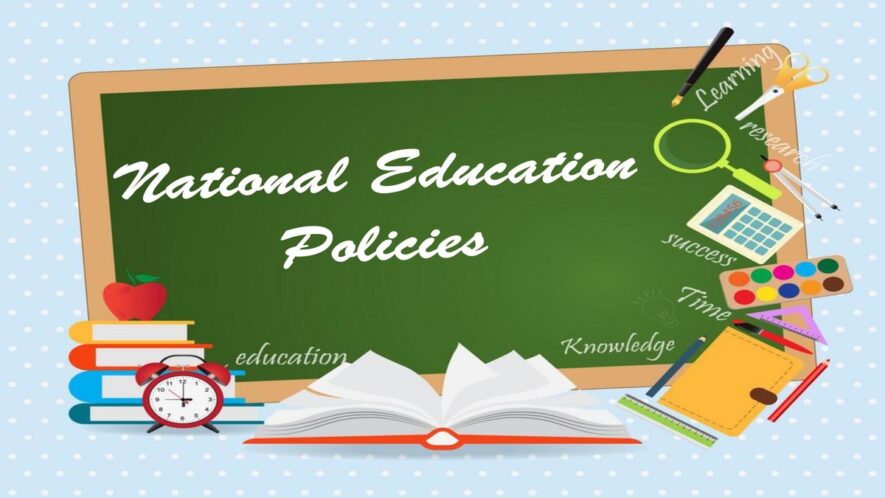
Since independence in 1947, a variety of documents were developed on National Education Policies as guidelines on access, quality and governance in education sector of Pakistan;
- National Education Conference (1947)
- National Education Commission Report (1959)
- The Education Policy (1972)
- National Education Policy (1979)
- National Education Policy (1992)
- National Education Policy (1998-2010)
- National Education Policy (2009)
- Draft National Education Policy (2017)
Salient Features of the Education Policy (1979)
The primary objective of this policy was to “Islamize” education in Pakistan, and to develop a curriculum more suited to national aspirations and a minimum level of literacy was to be ensured. The elitist, two-tiered system of education was to be eradicated by directing government sponsored English medium schools to adopt Urdu as a medium of education. Thus, the unfair advantage the students of English medium schools had in the job market to be eliminated.
Another significant decision in the policy was the recognition of Madrassa, or Mosque school, as an educational institution per se.
Salient Features of the Education Policy (1992)
The Education Policy 1992 was focused on the following;
- Achieving universal primary education, eliminating drop-out rates, and fulfilling the basic learning needs by the year 2002.
- Encouraging involvement of the private sector for participation in the education system.
- Stressing women’s education.
- Raising the quality of an extensive in-service teachers’ training program.
- Diversification of vocational streams along with expansion of graduate and postgraduate level courses.
- Reforming of examination system.
- Introducing computer education at school level.
- Encouraging community participation in educational affairs.
Salient Features of the National Education Policy (1998)
The main features of the Education Policy (1998-2010) are as under;
- Every child of six to twelve year age group will be in a school within five years.
- Katchi class at primary level shall be introduced as part of the effort to improve the achievement of pupils.
- Access to elementary education shall be increased, through effective aid optimum utilization of existing facilities and services, as well as provision of new facilities and services.
- Improving the quality, access and efficiency of elementary education.
- Strengthening, governance, management/planning, supervision, monitoring & evaluation.
- Ensuring financial sustainability of elementary education and also to build institutional capacity.
Salient Features of the National Education Policy (2009)
The policy document identifies policy actions in pursuit of two overarching objectives:
- Widening access to education; and
- Improving quality
It also speaks about the two important gaps:
- Commitment and
- Implementation.
Key Policy Actions identified are as follows:
- Provinces and Area Governments shall affirm the goal of achieving universal and free primary education by 2015 and up to class 10 by 2025.
- Provincial and Area Governments shall develop plans for achieving these targets, including intermediate enrolment targets and estimates of the required financial, technical, human and organizational resources.
- The plans shall also promote equity in education with the aim of eliminating social exclusion and promoting national cohesion. Greater opportunities shall be provided to marginalized groups of society, particularly girls.
- To achieve the commitments of Government of Pakistan towards Education for All (EFA) and the MDGs, inclusive and child-friendly education shall be promoted.
- Special measures shall be adopted to ensure inclusion of special persons in mainstream education as well as in literacy and Technical and Vocational Education (TVE) programs.
- Governments shall improve provision of quality educational at all levels.
- National Standards for educational inputs, processes and outputs shall be determined. A National Authority for Standards of Education shall be established. The standards shall not debar a provincial and area government/organization from having its own standards higher than the minimum prescribed standards.
- Provincial Governments and district authorities shall establish monitoring and inspection systems to ensure quality education and service delivery in all institutions.
- Steps shall be taken to make provision of education relevant to the employability in market and for promoting innovation in the economy.
- Universities and research institutes shall place greater emphasis on mobilizing research for promoting innovation in the economy. The National Education Policy (2009) NPA to Accelerate Education-Related MDGs, National Plan of Action Pakistan (2013-16).
- Educational inputs need to be designed with comprehension of the challenges and opportunities related to globalization. Strategies shall be developed to optimize opportunities and minimize the potential negative impacts.
Salient Features of Draft National Education Policy, 2017
Following the salient features of the draft National Education Policy;
- Provide free and compulsory education up to Matric in compliance with the provisions of Article 25 (A) of the Constitution.
- Meeting the learning needs of the child which include learning tools (literacy, numeracy, problem solving and oral expression) and learning contents (knowledge, skills, value and attitude).
- Honor national and international commitments in education and literacy.
- Promote culture of research and innovation.
- Increase investment in education to 4% of GDP.
- Expand, strengthen and promote universal, comprehensive Early Childhood Education with an objective to ensure holistic development of child to prepare for formal schooling.
- Achieve universal quality primary education covering all the three dimensions/ aspects of universalization i.e. universal access/enrolment; universal retention; and universal achievement by 2020.
- Expand and strengthen the facilities and services for middle and secondary level education by upgrading more primary schools to middle and secondary level.
- Expand and extend the existing non-formal basic education program to middle level (VI-VIII).
- Achieve the target of literate Pakistan through launching the country wide campaign of literacy for all and through all.
- Re-introduce the quality technical and vocational education stream in selected schools at secondary and higher secondary school level to comply with national TEVTA standards.
- Establish trade schools at sub-district and district level.
- Encourage, facilitate quality private sector education.
- Achieve gender parity, gender equality and empower women and girls within shortest possible time.
- Improve the quality of education by introducing reforms of new initiatives in curriculum formulation, textbook and instructional materials development, teacher training, examination and assessment and monitoring and supervision.
- Recruit competent, capable and committed scholar-teachers purely on merit basis at all level of education.
- Develop and implement National Curriculum Framework and National Standards for each subject from Grade 1-12.
- Institutionalize new curriculum formulation, textbook development and review process in the light of 18 th Amendment in consultation with National Curriculum Council.
- Promote regulated and monitored Public-Private Partnership for educational development.
- Improve coordination at local, district, provincial, national and international levels in education and literacy especially to achieve national and international commitments such as SDGs.
- Increase the investment in education by increasing the allocation, simplifying the procedures of releases and expenditure and improving the absorptive capacity of the system.
- Professional finance staff to be hired at the district levels to monitor the effective, timely utilization of funds according to the plans for increasing access upgrading the facilities and hiring of teachers on merit.
- Support to Deeni Madaris to utilize their services for promotion of adult literacy and non-formal basic education.
- Suggest effective mechanisms for implementation of education policy provisions. Educational administrators at Federal and Provincial levels to be held accountable for failure in timely implementation of policies and plans.
Focus of All the Policies
The main focus of all these policies was that the government must take steps to allocate enough resources to make sure that Education in the country is;
- Available: There must be adequate materials, classrooms, schools, trained teachers to ensure that quality education is available to every child.
- Accessible: Schools must be within reach and fit for purpose. They must be affordable for all children. There must be no discrimination for gender, race, religion or any other reason.
- Acceptable: Education must be of a high quality and include relevant information that is appropriate. Children with disabilities have the right to the same quality of education.
- Adaptable: Schools and school systems must be suitable for the communities they serve.
Shahbaz, S. T. (2018). Report of the Committee on Education Sector Reforms in Pakistan. Islamabad: Federal Ombudsman Pakistan.
OTHER RELATED POSTS
Education Sector Reforms (2000-2003)
Effect of Population Growth on National Development
- Tags: all education policies , bentick education policy , current national education policy , education policies pakistan , education policy , education policy 1972 , education policy 1979 , education policy 1998-2010 , education policy 2009 , education policy 2017 , education policy 2020 , education policy 2021 , higher education policy , national education policy , national education policy 1986 , national education policy 2020 , national education policy 2021 , nep , nep 2020 in hindi , new education policy , new education policy 2019 , new education policy 2020 , new education policy 2020 in hindi , new education policy 2021
CAI — Computer Assisted Instruction
Anwaar Ahmad Gulzar
Related articles.
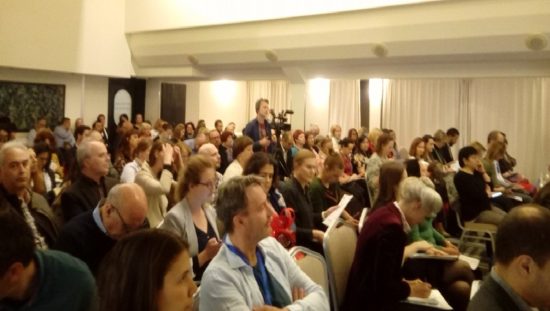

Non-Formal Education
Non-formal education includes adult basic education, adult literacy education or school equivalency preparation. In non-formal learning, someone (who is not in school) can learn literacy, other basic skills or job skills. Non-formal education is imparted consciously and deliberately and systematically implemented. It should be organized for a homogeneous group. Non-formal, education should be programmed to serve the […]
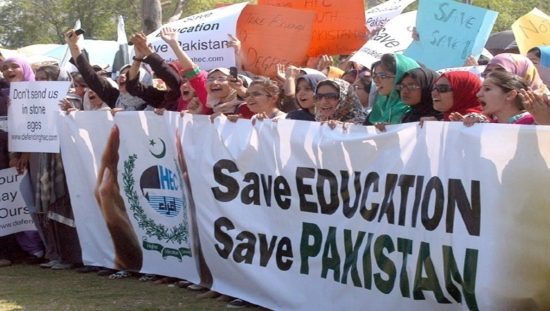
Problems of Education in Pakistan
Problems of Education include Lack of Uniformity, Education without Direction, Outdated Curricula, Lack of Quality Teachers, Alarming Dropouts,
Leave a Reply Cancel reply
Your email address will not be published. Required fields are marked *
Save my name, email, and website in this browser for the next time I comment.
- The Body Shop X PILDAT
- Youth Parliament Pakistan
- Publications
- PILDAT Activities / Events
- Parliamentary Development
- Parliamentary Monitoring
- Assessment of Democracy
- Electoral Reforms
- Inter-Institutional Relations
- Political Parties
- Right To Information
- Rule Of Law
- WHISTLEBLOWING
- PUBLICATIONS
- PILDAT IN MEDIA
- Procurement Announcements

The National Education Policy 2009
PILDAT Policy Brief
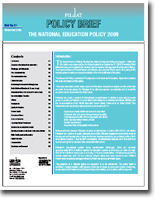
Rs 3,000 Select Your Currency Pakistani Rupees (PKR) US Dollar (USD)
Pakistan’s current level of educational achievement is poor. Pakistani society continues to reflect considerable social and financial disparities, which affect the educational opportunities and potentials of a significant section of the population. The marked disparities between provinces, urban and rural education and the opportunities available to boys and girls continue to hamper the life choices of individuals and Pakistan’s economic potential as a nation. If Pakistan is to properly serve its citizens and to be equipped to operate in the global economy, significant reform and improvement is required. The National Education Policy 2009 sets, for Pakistan, ambitious objectives and targets at all levels of education. The realisation of these targets will be dependent upon the delivery of financial commitments at federal level and effective implementation at provincial level.
Follow us on Social Media Pages

- About PILDAT
- Privacy Policy
Newsletter Signup :

- Searched terms must be at least 3 characters in length.
- * sign can be used as a wildcard : educat* will match education, educator, educative, etc.
- Quotation marks can be used to search for an exact expression: “teacher education” will retrieve fewer results than teacher education.
- You can combine criteria: “teacher education” Africa
Portal of Education Plans and Policies
Planipolis is a portal of national education plans and policies and key education frameworks and monitoring reports.
It provides a single entry point to official education resources for national policy makers, donors and partners.
Export csv Education Sector Analysis (ESA)
- All countries
- Americas and the Caribbean
- Arab States
- Asia and the Pacific
- Country Profiles
- EFA 2000 Assessments
- EFA 2015 Reviews
- EFA Mid-Decade Assessments
- Education for All National Action Plans
- Human Development Reports
- Millennium Development Goals Reports
- National Development Plans
- National Education Legislations
- National Education Plans
- National Education Policies
- Poverty Reduction Strategy Papers
- SDG Voluntary National Reviews
- United Nations Development Assistance Frameworks
National education policy 2009
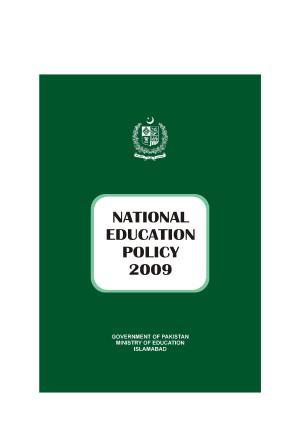

IMAGES
COMMENTS
1. The National Education Policy (NEP) 2009 (“the Policy”) comes in a series of education policies dating back to the very inception of the country in 1947. The review process for the National Education Policy 1998-2010 was initiated in 2005 and the first document, the White Paper was finalised in March 2007.
Sep 21, 2018 · 1. National Education Policy 2009 AIMS AND OBJECTIVES: 1: To enable Pakistan to fulfill its commitments to achieve Dakar Framework of Action EFA Goals and Millennium Development Goals relating to education. 2: To create a sense of unity and nationhood and promote the desire to create welfare State for the people of Pakistan. 3: To promote national cohesion by respecting each other’s faith ...
Sep 21, 2018 · 2. Aims and Objectives: 1: To achieve EFA Goals and Millennium Development Goals (MDGs). 2: To create a sense of nationhood. 3: To promote national cohesion by equal weight to religion, cultural and ethnic diversity 4: To provide and ensure equal educational opportunities to all the citizens of Pakistan. 5: To improve the quality of education.
NATIONAL EDUCATION POLICY 2009 - UNESCO
of professionalism among teachers and accrediting programs offered by teacher education (Mayer, 2009). The Union of Education Norway has tabled education policies to enhance the status and legitimacy of the teachers’ profe & Granlund ssionalism (Mausethagen 2012). In the Australian context, professional standards for teachers contribute to the
implementation status of National Education Policy 2009 and help in revising the Education Policy. The study has focused on sub sectors of Education Policy i.e. Early Childhood Education (ECE), Free and Compulsory Primary Education, Elementary Education, Secondary Education, Literacy and Non-formal Education, Improving Teacher
National Education policy 2009 - Free download as PDF File (.pdf), Text File (.txt) or read online for free. Achieve universal primary education by 2015 Reduce the literacy rate to 80% by 2015 Provide non-formal basic education and skills training for out-of-school children and adults Integrate early childhood education into the formal system within 10 years 03 The establishment of a National ...
Mar 6, 2022 · National Education Policy (1992) National Education Policy (1998-2010) National Education Policy (2009) Draft National Education Policy (2017) Salient Features of the Education Policy (1979) The primary objective of this policy was to “Islamize” education in Pakistan, and to develop a curriculum more suited to national aspirations and a ...
Dec 1, 2009 · The National Education Policy 2009 sets, for Pakistan, ambitious objectives and targets at all levels of education. The realisation of these targets will be dependent upon the delivery of financial commitments at federal level and effective implementation at provincial level.
Planipolis is a portal of national education plans and policies and key education frameworks and monitoring reports. ... Ministry of Education, 2009 2009 63 p. ...